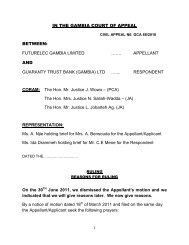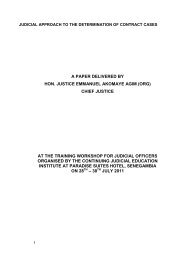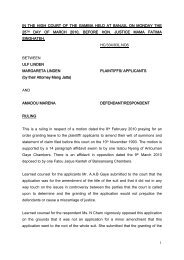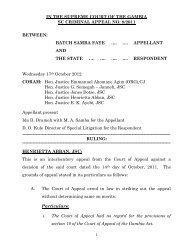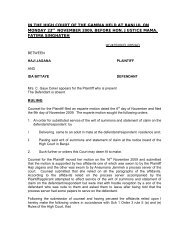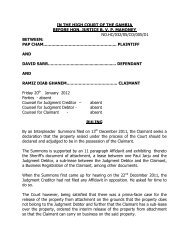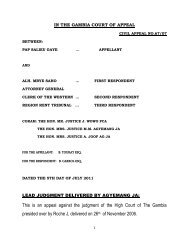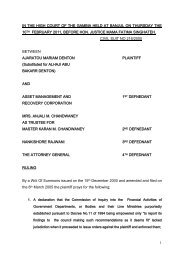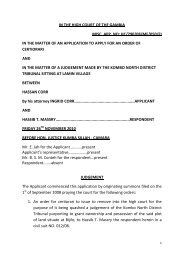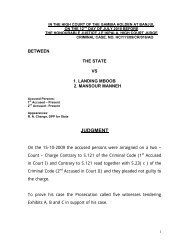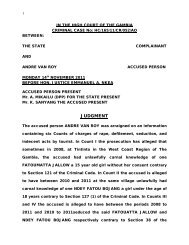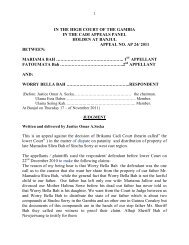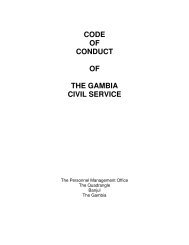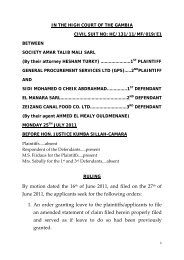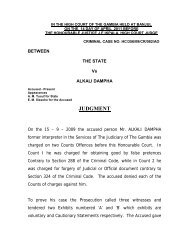Preface
Preface
Preface
Create successful ePaper yourself
Turn your PDF publications into a flip-book with our unique Google optimized e-Paper software.
68<br />
The above issues were not proved by credible evidence. It is a trite law that a<br />
trial court must decide a case on the strength of legal evidence adduced before it<br />
and where it has failed to follow this course, as it is in the instant case, an appeal<br />
court will have no option than to interfere with its decision. In Ihkamul Ahkam<br />
Chapter 4 (which deals with issues relating to Judicial Proceedings) page 16 it is<br />
provided:<br />
Meaning it is unanimously agreed by the jurists that a judge can pass judgment<br />
only on a piece of evidence duly extracted from the witnesses. On cases other than<br />
that, Imam Malik has strictly forbidden judgments which are not based upon<br />
evidence of witnesses.<br />
The burden of proof under Islamic law is on the plaintiff. Where the plaintiff<br />
fails to discharge that burden, then the defendant is asked to subscribe to what is<br />
called "Judicial/Exculpatory Oath" to entitle him to judgment where the claim is<br />
pecuniary in nature or same is based on claim of a disputed property of monetary<br />
value. This is based on the authority of a prophetic tradition in which the prophet<br />
(PBUH) told a plaintiff: "your two witnesses or his oath no more no less ".<br />
The procedure for conducting a trial under Islamic law succinctly stated is as<br />
follows:<br />
(f) The plaintiff shall state his case or claim before the court which claim must<br />
be a valid one satisfying all its prerequisites,



